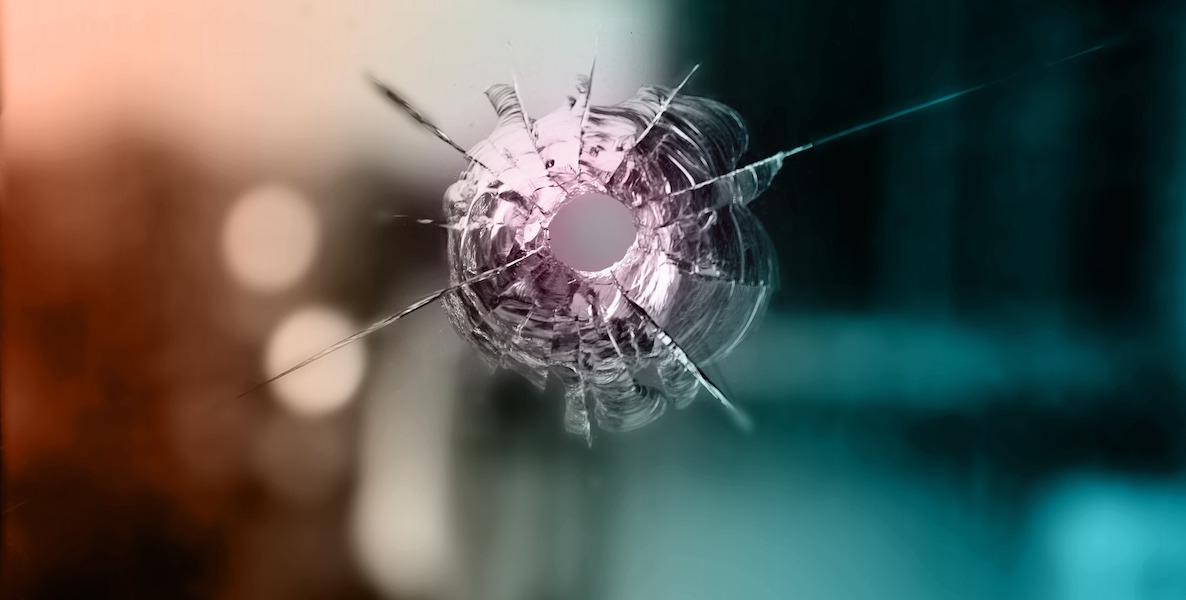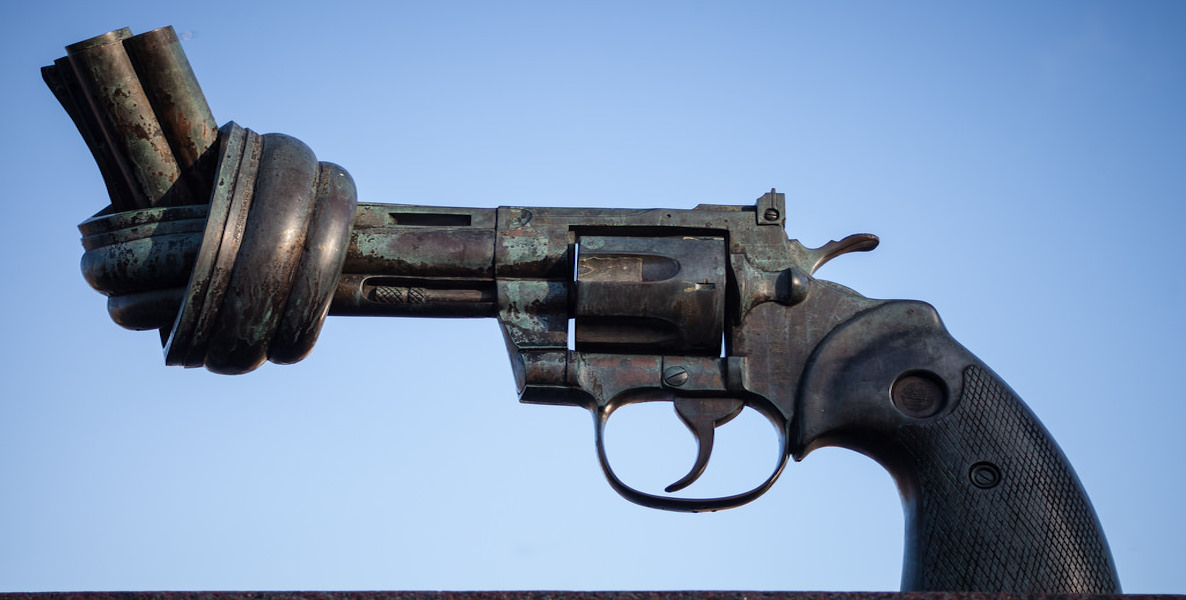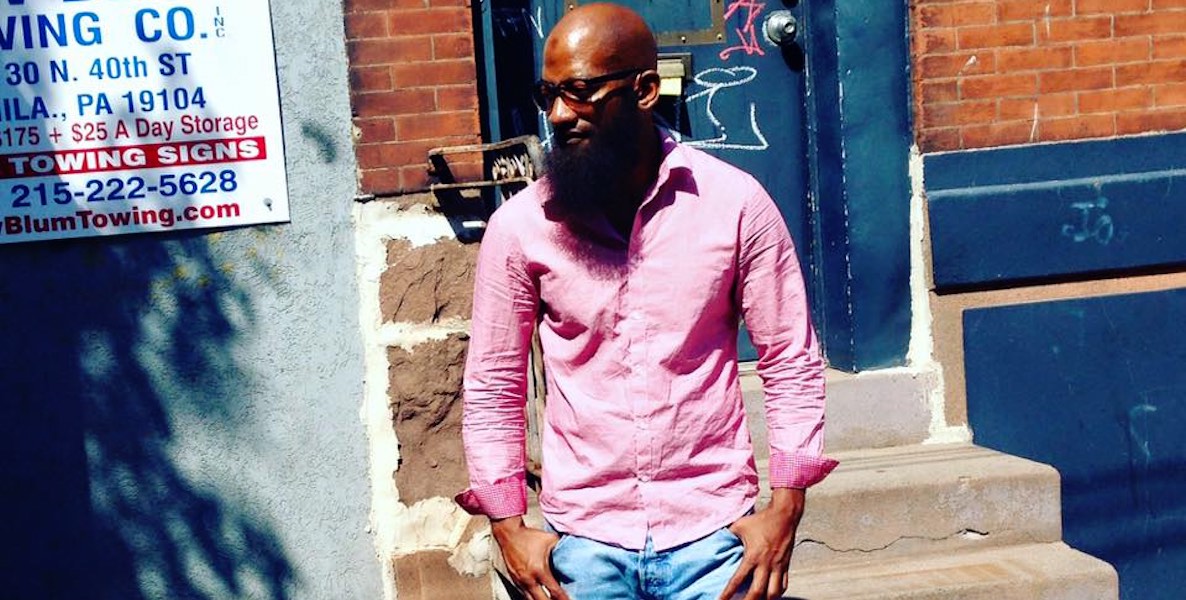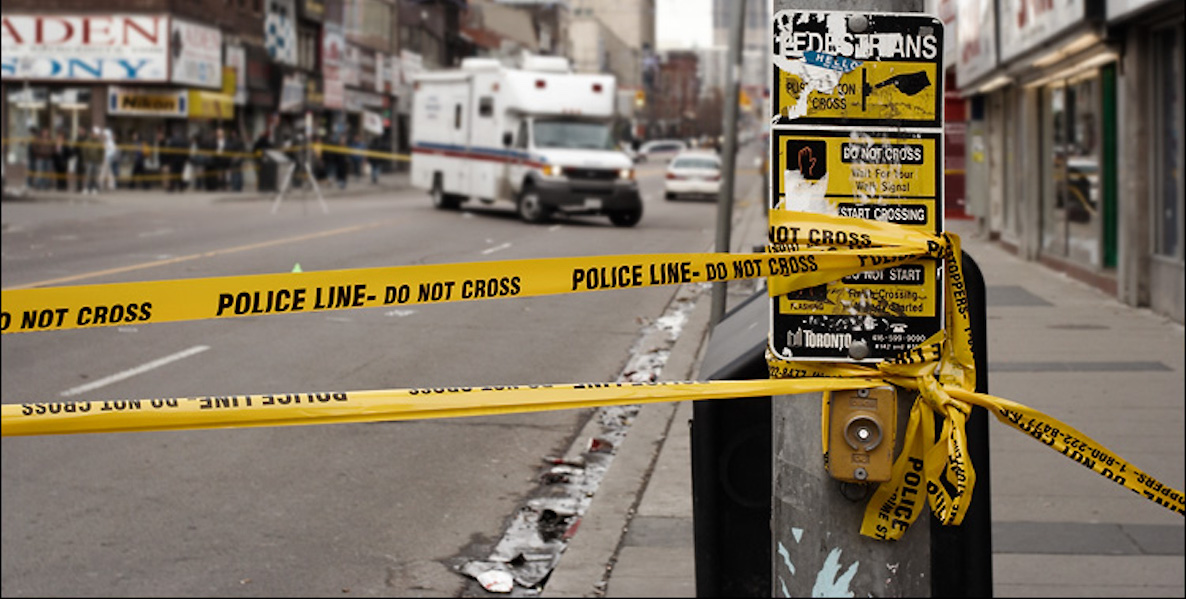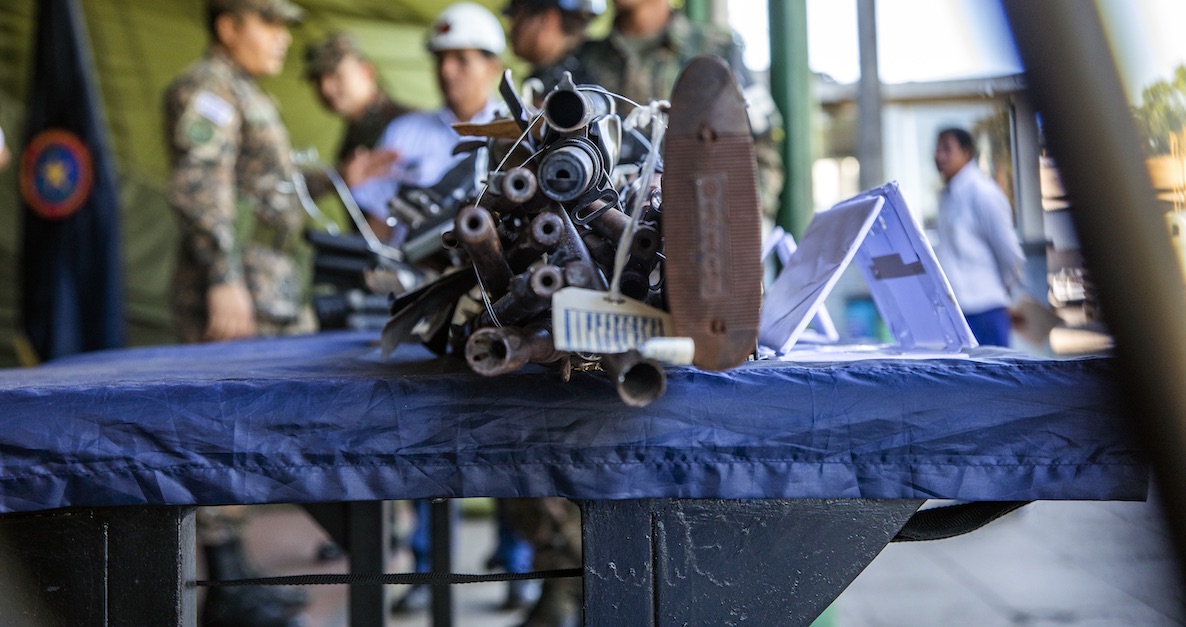In El Salvador, where gangs and guns are so prevalent that the homicide rate is 1 in 81, it’s nearly impossible for even the most well-intentioned organizations to make progress in any other problematic sphere.
Kristina Jannerbo understands this firsthand. As the regional director in Central America for IM Swedish Development Partner—an NGO that, for the last several decades, has worked on initiatives to educate and uplift Central American communities—she has seen how attempts to empower women, for example, were undermined by the country’s maras, or gangs.
One IM program she oversaw involved giving groups of five women a chicken, as a means of self-sufficiency and empowerment; it failed, however, because a five-woman group was simply too conspicuous.
“It was impossible for us to support initiatives with five women working together, because they are too visible and they are harassed by the gangs. The gangs want extortion,” Jannerbo explains. To make real progress in areas like poverty, health, women’s empowerment, and gang violence, Jannerbo and others realized, more first had to be done about guns.
![]()
Enter Peter Brune, for years the Head of IM’s International Department. Brune and his colleague Johan Pihl became determined to find a viable way to turn metal from weapons into something usable—and beautiful. And over the last four years, Brune, Pihl, and their colleagues and partners around the world came up with a framework in El Salvador in which to make that vision possible.
Now, through an initiative called Humanium Metal by IM, weapons confiscated in El Salvador are destroyed in a facility there, converted to usable metal powder, and sold to companies for use in other products. Since 2016, 4,500 confiscated weapons have been destroyed and used in watches by Triwa, bracelets by Arild Links, and spinning tops by Foreverspin, with more production partners on the way.
![]()
The program is too new to have metrics pointing to whether or not it’s already reducing violence, Jannerbo says. But most significantly at this early stage, and beyond, all proceeds from the sale of the powder to companies and a portion of proceeds generated by the sale of these products is then funneled back into IM’s programming in El Salvador, like providing youth economic opportunities as an alternative to joining gangs, organizing advocacy efforts at a national level to change violence prevention laws, and attending to victims of armed violence. Looking ahead, IM hopes the program can lead to job opportunities—that companies in El Salvador can use the metal to create products, and in turn employment—as well.
“Life is hard, you have high levels of poverty, but this gives hope that you can actually change. You can change metal into product. You can change metal into violence prevention, attention to victims,” Jannerbo says.
“Part of the beauty of this project, the symbolic value of actually transforming metal into products and generating money, is that it gives hope back to people,” Jannerbo says. “They have something to believe in. Life is hard, you have high levels of poverty, but this gives hope that you can actually change. You can change metal into product. You can change metal into violence prevention, attention to victims.”
Jannerbo says that for a program like this to work elsewhere, several factors need to be in place: “You need a framework where it’s legal to destroy weapons; you need political will from authorities who believe in the idea and invest in it; and you need a very important dialogue between authorities, civil society, and the private sector.” El Salvador checked all the boxes.
![]()
So how about Philly, where, in 2018, 1 in 1,138 residents was a victim of gun violence and 3,649 firearms were seized, and then either destroyed, retained for evidence in court, or—in certain circumstances—returned to the lawful owner? Scott P. Charles, Trauma Outreach Coordinator and Director of the Cradle2Grave Program at Temple University Hospital, says the idea is just crazy enough—just Philly enough—to possibly work here too.
“This is such a novel idea, to think about repurposing a gun into something that’s positive, or brings joy, and has some real benefit to others,” he says. Charles is particularly intrigued by the potential of converting the metal into goods that citizens could then sell as a way to start businesses. “If, for example, people could sell these cool necklaces that have a message of peace, then people could say there’s a real trade-off, a real return on their investment. ‘I gave up my gun, and it ended up meaning that my dude over here, or somebody that I don’t even know but who’s from my similar experience, was able to have a benefit from it.’ I think that’s something people—something Philly—could get behind.”



